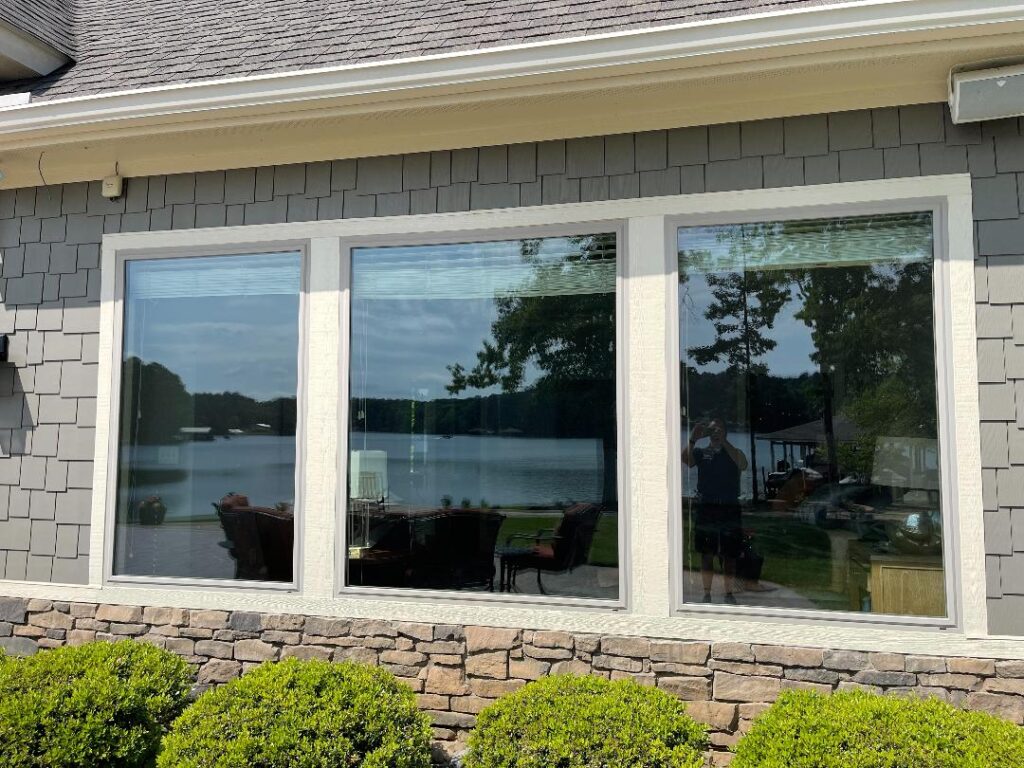Residential Window Tint: Boost Safety And Security and Add a Layer of Protection
Residential Window Tint: Boost Safety And Security and Add a Layer of Protection
Blog Article
How Residential Home Window Tinting Enhances Your Home's Energy Efficiency
Residential home window tinting provides a compelling solution for house owners seeking to boost energy efficiency within their living spaces. By applying specialized films to windows, it efficiently minimizes heat transfer, consequently maintaining indoor temperature levels and reducing the requirement for excessive home heating or air conditioning.
Understanding Home Window Tinting
Understanding home window tinting is important for house owners seeking to improve both convenience and power efficiency in their home. Residential Window Tint. Home window tinting involves the application of a thin movie to the inside or exterior surface of glass windows. This movie can substantially modulate the quantity of sunshine and warmth that goes into a home, thus affecting interior environment conditions
There are different types of window tinting films available, each with distinctive homes. The effectiveness of window tinting is commonly determined by its Visible Light Transmission (VLT) percent, which shows exactly how much light can pass through the film.
Benefits of Energy Efficiency
Home window tinting not just enhances visual appeals yet likewise plays a considerable role in enhancing power effectiveness within property rooms. By minimizing heat transfer through home windows, tinted movies produce a more steady indoor environment, which can result in significant reductions in power intake for cooling and heating. This power performance equates right into lower energy bills, providing property owners with substantial lasting cost savings.

In addition, home window tinting improves the convenience of living spaces. By minimizing glow and blocking dangerous UV rays, colored home windows create a more positive setting, which can cause enhanced wellness for occupants. The security against UV rays also helps protect furnishings and floor covering from fading, adding to the long life of household products.
Exactly How Tinting Works
Tinting films operate with a mix of innovative materials and modern technologies developed to control the amount of solar power getting in a home. Primarily composed of polyester, these films often include metal or ceramic particles that mirror and soak up warm. This twin capability enables them to considerably minimize the penetration of ultraviolet (UV) rays and infrared radiation while allowing visible light to go through.
The performance of window tinting is measured by its solar warm gain coefficient (SHGC), which indicates just how much solar power is sent with the home window. Lower SHGC worths are more effective as they represent higher warmth rejection. Furthermore, home window colors can include a selection of shades, enabling house owners to tailor their aesthetic choices while enhancing energy efficiency.
Additionally, these films work as a barrier, preventing warmth loss during colder months by reflecting indoor warmth back into the space. This thermal insulation impact enhances the air conditioning advantages obtained during warmer months, adding to a balanced indoor climate year-round. By taking care of solar power successfully, property window tinting not only improves comfort but also plays an essential role in reducing energy consumption and decreasing utility costs.
Selecting the Right Tint

There are various types of window films available, including dyed, metalized, and ceramic. Ceramic movies provide superb warmth control without compromising visibility and are very durable, making them a preferred selection.
Visible light transmission (VLT) is an additional crucial aspect, as it suggests the amount of all-natural light that can pass via the colored glass. Homeowners ought to pick a tint with a VLT that enhances their about his lights choices while still giving sufficient glare decrease.
Additionally, examining the solar warmth gain coefficient (SHGC) can assist identify just how well a color can obstruct warmth from sunlight. A lower SHGC suggests much better heat control, eventually improving energy efficiency.
Setup and Maintenance Tips
Correct installation and upkeep are crucial parts in taking full advantage of the benefits of residential home window tinting. Specialists also make use of specialized strategies and tools, which can enhance the longevity and performance of the color.
Following installment, upkeep is vital to extend the life of the home window movie. It is recommended to wait at the very least 30 days prior to cleaning up the tinted windows to enable the sticky to cure totally.
Furthermore, normal assessments are beneficial. Examine for any kind of peeling or bubbling, which can indicate improper installation or put on with time - Residential browse around these guys Window Tint. Attending to these problems immediately can protect against additional damage and maintain power efficiency. By sticking to these setup and maintenance suggestions, home owners can ensure their window tinting continues to offer substantial power savings and convenience for several years to come.
Final Thought
In final thought, domestic home window tinting offers as an efficient service for visit site improving energy performance within homes. By reducing warmth transfer and obstructing damaging UV rays, window films contribute to lower energy usage and boosted interior comfort.
Window tinting involves the application of a slim film to the inside or exterior surface of glass home windows. By minimizing heat transfer with windows, colored movies develop a much more secure interior environment, which can lead to considerable decreases in energy usage for home heating and cooling.The performance of home window tinting is measured by its solar heat gain coefficient (SHGC), which shows exactly how much solar energy is sent through the window. By handling solar power effectively, domestic window tinting not just enhances convenience however also plays an essential function in reducing power consumption and lowering energy expenses.
By lowering warmth transfer and obstructing dangerous UV rays, window movies contribute to lower power usage and improved interior comfort.
Report this page